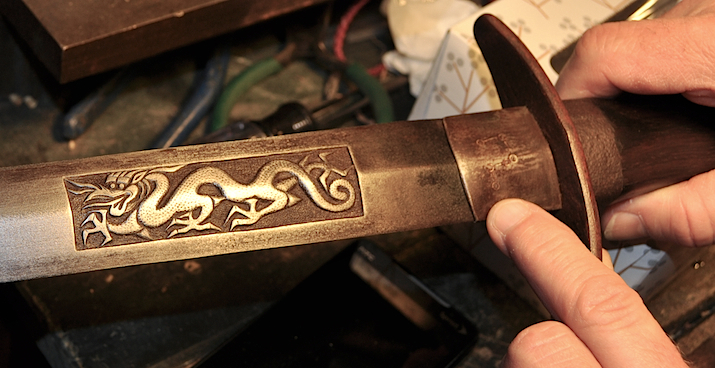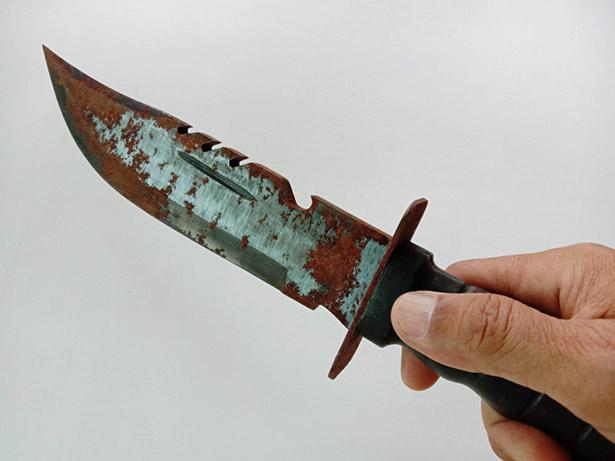Can blood cause a knife to rust?
Yes, blood can cause a knife to rust. Rust is a natural process that occurs when iron or steel comes into contact with moisture and oxygen. Blood contains water, which can provide the necessary moisture for rusting to occur. Additionally, blood contains salts and proteins that can accelerate the corrosion process.
If you happen to toss the knife into a sheath that’s brimming with moisture, be it saltwater, blood, or some other liquid, brace yourself for some rust to form on the blade.
Rust Formation Process
Rust is a common issue that can affect knives made of steel. Understanding the process behind rust formation can help knife owners take appropriate measures to prevent it. When iron in steel reacts with oxygen and moisture, a reddish-brown buildup known as rust develops. Moisture, such as blood, can accelerate the rusting process. Blood contains water and other substances that can facilitate the corrosion of iron. Therefore, it is important to properly clean and dry a knife after it comes into contact with blood to prevent rust formation. Taking proactive steps to maintain a rust-free knife is crucial for its longevity and performance.

Factors Affecting Rust Formation
Blood Contamination on Knife Blades
One common concern regarding knife rust is whether blood can cause blades to corrode. Blood contains a high level of salt and proteins, which can accelerate the rusting process. When blood comes into contact with a knife blade and is not properly cleaned off, it can lead to rust formation. It is important to promptly clean and dry your knife after any contact with blood to prevent corrosion.
Other Environmental Factors that Contribute to Rust
Apart from blood contamination, there are other environmental factors that can contribute to rust formation on knife blades. These include:
- Moisture: Exposure to moisture, such as humidity or wet conditions, can speed up the rusting process.
- Oxygen: Knife blades that are exposed to oxygen for extended periods are more prone to rust formation.
- Acids: Some foods, cleaning agents, or chemicals contain acidic properties that can initiate or accelerate rust formation.
By understanding these factors and taking proper care of your knife, you can prevent rust and ensure its longevity.

Prevention and Maintenance Tips
Cleaning and Drying Knives After Use
To prevent rust on your knife, it is crucial to clean and dry it properly after each use. Here are some tips to follow:
- Wash the knife with soapy water and thoroughly dry it before storing it away.
- Pay extra attention when using the knife with acidic materials, such as onions or vinegar. Clean off these substances promptly to prevent quick rusting.
- Avoid leaving the knife in a sink or any place where it can be exposed to moisture for an extended period.
Applying Protective Coatings or Oils
Coatings and oils can provide an additional layer of protection against rust. Consider the following tips:
- Apply a thin layer of blade wax or other suitable protective wax after cleaning and drying the knife. This helps to seal the blade and prevent moisture from getting underneath any scratches or exposed silver areas.
- If you prefer using oils, ensure they cover the entire blade to promote corrosion resistance. It’s essential to choose food-safe options to avoid affecting the taste of food or posing any health risks.
- Keep in mind that every coating or oil can potentially get scratched, so regular reapplication is necessary.
By following these prevention and maintenance tips, you can keep your knife rust-free and in optimal condition for lasting use.

Debunking Myths
Common Misconceptions about Blood and Knife Rust
There is a common belief that blood can cause a knife to rust due to its acidic nature. However, this is not entirely true. While blood does contain certain compounds that can contribute to the corrosion of steel, the amount of blood typically present on a knife is not enough to cause significant rusting. Proper knife maintenance is key in preventing rust, such as cleaning and drying the blade after each use.
Investigating Other Corrosive Agents
While blood may not be a major concern for knife rust, there are other corrosive agents that can pose a risk. For example, exposure to saltwater, acidic foods, or high humidity can accelerate the rusting process. It is essential to keep your knife clean and dry and consider applying a protective coating to prevent corrosion further.

